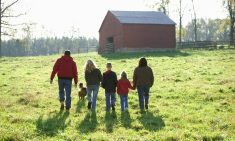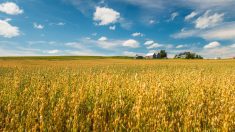It’s what people who aren’t business leaders rarely understand. Leadership means knowing how to make big decisions when you don’t have full information, like this year
I have been asking myself this question all spring. I’m sure you have been too.
Five years from now, when we look back at 2022, who are we going to say made the best decisions?
Who pulled the right levers? What choices turned out to be the right decisions? Which turned out to be not wrong, but just second best?
Read Also

Part 4: Financial disagreements between farm siblings
A six-part series that looks at the challenges sibling conflict can have on the farm business and family business relationships.
There’s no such thing as a non-stress year in farming, at least not if your goal is to see the farm continue into the next generation with a good chance of success.
Future-proofing is on our cover this issue, and — fair warning — you’re going to see it repeatedly and in a more focused way in our pages as the year progresses.
Increasingly, we predict, 2022 is going to be less about black swans and more about their very opposite.
It’s going to be about how to find a stable, intentional direction for the farm that allows growth, despite the fact that achieving real growth can seem more challenging now than at any time for a generation.
It’s also going to be about the fact that, as every farmer knows, sometimes playing it too safe is the biggest risk of all.
As I say, there is more to tell you what’s in our heads as we plan the stories we will investigate for this summer through winter.
But one thing is remarkably clear already.
Research by Farm Management Canada (FMC) in 2020 found that only one farm in five in Canada has a business plan that they use on a frequent and ongoing basis to make decisions on the farm.
I know some readers will see nothing wrong in that. They’ll say you don’t need to have a plan in print in order to have a plan.
They may also say they went through a business planning session 20 years ago, and they’ll point to a folder on a shelf that hasn’t been touched ever since.
Well, you’ll have to let me disagree.
I’ve been persuaded, not by “experts” but by the farmers we interview in Guide, and I find their case compelling.
I’m not disparaging any farmer who doesn’t have a plan. In my books, farming has always been a game for thinkers. Every farmer I know has well thought out answers for the tough questions they face.
But is that enough today? RBC’s Gwen Paddock says on page 8 that today’s farms are being run as “mid- market commercial clients,” by which I infer she is saying there are opportunities for real gains if they are run this way.
That’s sobering.
I will be heartened this year if I learn there has been a major uptick in traffic for FMC’s web resources. Take a quick look yourself and see if you don’t agree.
We can’t yet take that hindsight view that I spoke of. We can’t say which 2022 decisions will turn out best, but it’s no stretch to bet that, overall, farms with plans will outperform those without.
Are we getting it right? Let me know.
















